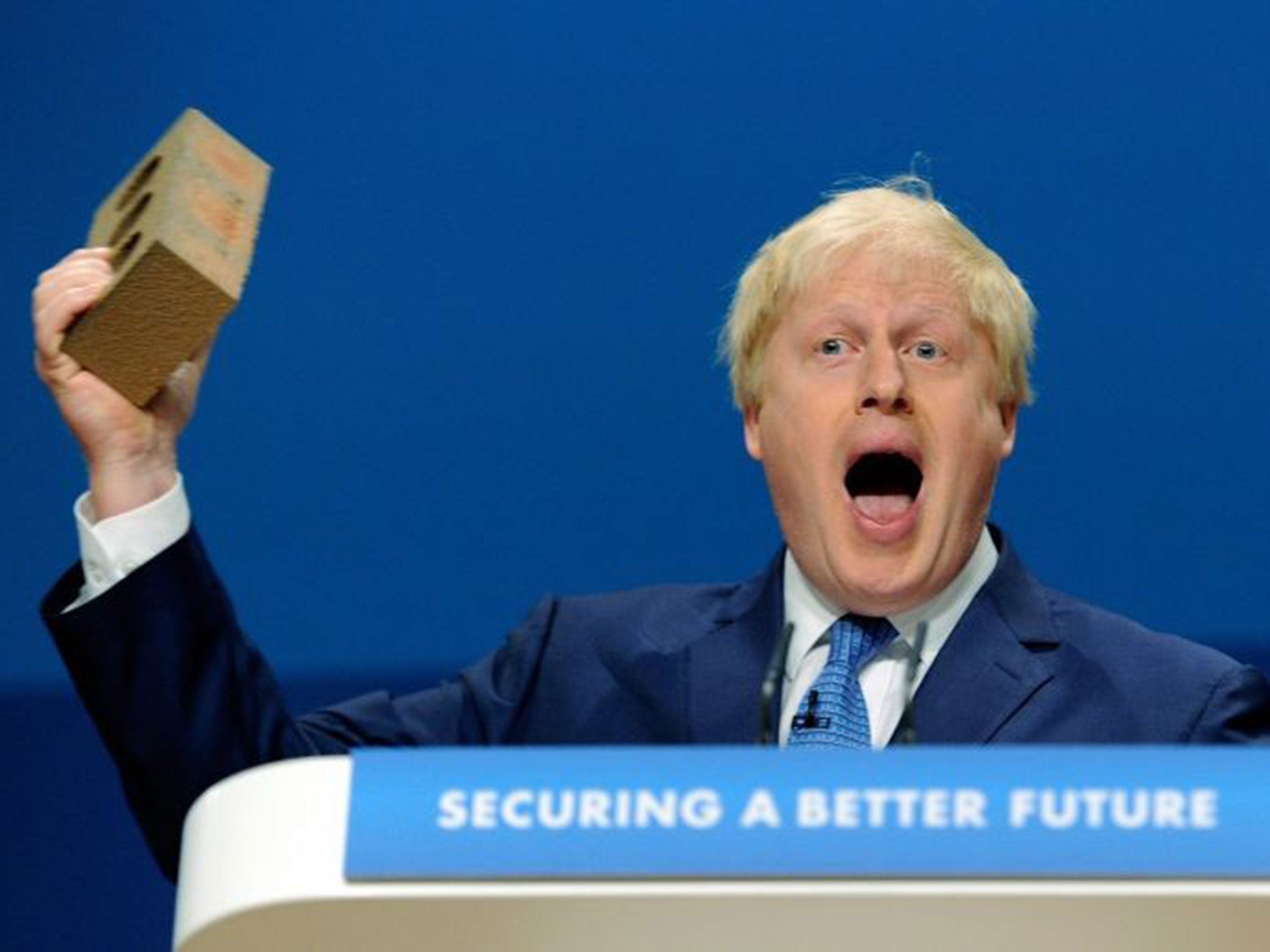Politicians should avoid inviting real people to their conferences — it only makes them look even weirder
What can a career politician who has gone from public school to Westminster possibly know about real life?

Party conferences are incredibly weird. All those robotic standing ovations when the boss gets to the end of his speech; all that office Christmas party dancing; all those “party faithfuls” wearing T-shirts in September; and quite often the full horror of all of those things happening at once, to the strains of Fleetwood Mac.
Not all of it is the fault of MPs. If you filmed the work conventions of accountants, or dentists, or teachers, they would probably look just as cringe-worthy, just as weird and full of badges, sponsored pens and David Brent moments as a party conference. The saving grace is that most professions hold their peculiar annual gatherings behind closed doors. Just a bunch of like-minded souls, hanging out, shooting the breeze about spreadsheets, or composite fillings, or exam boards. Politicians, on the other hand, invite the UK press corps to come and watch. Of course they do – they have a message to get out.
The party conference is not just an opportunity for politicians to backslap each other, it is also a shop window for their people skills. The only other time their down-with-the-masses shtick gets a proper workout is around elections, when party leaders suddenly affect an interest in heavy machinery and the undercarriage of cars; flock en masse to bread factories and stand around in front of pallets in helmets and hi-vis making choppy hand gestures and talking about “route maps”, “solutions” and “working people”.
During conference season, MPs tend to wheel out “real people” as often as possible, presumably because a party conference looks like an alien planet to most outsiders. Or perhaps it’s an acknowledgment that they themselves are not quite real.
What can a career politician who has gone from public school to Westminster, with a brief gowned interlude at Oxbridge, possibly know about real life? When they’ve never even emptied their own bin? And so on. These are well-rehearsed complaints and politicians have their well-rehearsed retort. They know some real people; some have even talked to them.
Ed Miliband invoked a whole host of “realies” in his keynote speech, including, infamously, “Gareth”, a software engineer he met at a picnic on Hampstead Heath and who became a frequent touchstone in his speech about togetherness. He also referred to Josephine the Cleaner, Xiomara the Pub Chef and Rosie the Doctor. All of them real people with real concerns about house prices, jobs and families, all of them made to feel just a little fake in the hands of a politician with a message to sell and an eye on the main job.
Grant Shapps went a step further, performing his warm-up for the Conservative conference on a stage flanked by rows of real people, all wearing T-shirts emblazoned with the Union flag. They sat there mute and awkward as he spoke, like a chorus in a West End musical who have forgotten their lines. Against this backdrop, it was perhaps inevitable that one of the most noisily trumpeted guests at the Conservative conference was White Dee, the 21st-century epitome of a real person, having gained fame and notoriety on television just for being herself.
White Dee, real name Deirdre Kelly, is the breakout star of Benefits Street, the Channel 4 documentary series set on Birmingham’s James Turner Street, where 90 per cent of residents claim welfare. Kelly was brought to the Birmingham ICC to speak at a fringe event on welfare organised by the right-wing think tank Policy Exchange. And she did speak, quite plainly, about how to avoid school-leavers going straight on the dole, the difficulty of finding skilled jobs and out-of-touch politicians.
It was relatively refreshing to hear someone talk about real-life experiences first-hand, but for Kelly the appeal of having a voice was limited. She has already stated that she has little intention of going into politics because the £67,000 salary would represent too great a pay cut. She can earn far more – up to £6,000 a night – through personal appearances at nightclubs and student unions. Perhaps it is not surprising that real people and politics don’t mix.
Anyway, Kelly ended her brief foray into the unreal conference circus by suggesting she “very well could” vote Ukip in the next election. That’s the problem when you let real people speak for themselves, rather than co-opting their words into a heavily prepared speech – they so rarely toe the party line.

Join our commenting forum
Join thought-provoking conversations, follow other Independent readers and see their replies